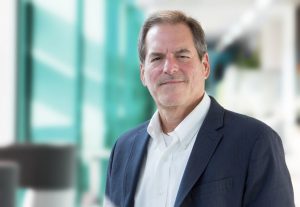
With $3 billion in capital and an executive team to be led by Hal Barron, MD, until now GlaxoSmithKline (GSK)’s president of R&D and chief scientific officer, Altos Labs™ today emerged from stealth mode, launching with the ambitious aim of reversing disease and aging processes that lead to injury, and disabilities through cellular rejuvenation programming.
Barron will step down from GSK effective August 1 to join Altos as CEO and co-chair Altos’ board along with Rick Klausner, MD, chief scientist and founder; and Hans Bishop, President and Founder. They will constitute Altos’ executive team along with Ann Lee-Karlon, PhD, who has been named Chief Operating Officer.
Nobel laureate and induced pluripotent stem cell pioneer researcher Shinya Yamanaka, MD, PhD, Director of the Center for iPS Cell Research and Application at Kyoto University, will serve as senior scientific advisor to Altos without remuneration, overseeing research activities in Japan. Yamanaka is also a senior investigator at the Gladstone Institutes.
“It’s clear from work by Shinya Yamanaka, and many others since his initial discoveries, that cells have the ability to rejuvenate, resetting their epigenetic clocks and erasing damage from a myriad of stressors,” Barron said in a statement. “These insights, combined with major advances in a number of transformative technologies, inspired Altos to reimagine medical treatments where reversing disease for patients of any age is possible.”
Added Yamanaka: “The possibility of rejuvenation programming has only recently become a scientific reality and has the potential to enable us to approach human disease in an entirely new way. I am glad that I will help scientists in Japan to work in this exciting field.”
Altos said its operations are intended to combine the freedom to pursue the most challenging problems in biology found in many academic institutions, as well as features associated with industry, which it articulated as a focus on a shared mission, ability to foster deep collaborations, and the passion and commitment to transform science into medicines.
“Builders and investors”
The company has not disclosed its investors behind its $3 billion launch, except to say they are “renowned company builders and investors.”
Altos did say, however, that it will be initially based in the San Francisco Bay Area and San Diego, as well as in Cambridge, U.K., with “significant” collaborations in Japan.
Within these regions, Altos plans to organize its activity across the Institutes of Science and the Institute of Medicine. Altos said its Altos Institutes of Science will pursue “deep scientific questions” and integrate their findings into a collaborative research effort—while the Altos Institute of Medicine will glean insights into cell health and programming, applying that knowledge toward developing “transformative” medicines.
The Bay Area Institute of Science will be led by Peter Walter, PhD, whose research has focused on developing molecular understanding of how cells control the quality of their proteins and organelles during homeostasis and stress. The San Diego Institute, by Juan Carlos Izpisua Belmonte, PhD, a regenerative medicine focused his research on improving health, including tissue and organ regeneration and cellular and organismal rejuvenation.
The Cambridge Institute will be headed by Wolf Reik, MD, whose research has specialized in epigenetic reprogramming of mammalian cells. He is an honorary professor of Epigenetics at the University of Cambridge, and served most recently as director of the Babraham Institute in Cambridge.
Prior to joining Altos, Walter was professor at University of California, San Francisco (UCSF) and investigator at the Howard Hughes Medical Institute; Belmonte was professor and chair at the Salk Institute; while Reik was director of the Babraham Institute and is an honorary professor at the University of Cambridge.
Altos’ Bay Area Institute of Science will include among its eight principal investigators Hana El-Samad, PhD, Editor-in-Chief of GEN Biotechnology, a new peer-reviewed journal from GEN and its publisher Mary Ann Liebert Inc., Publishers. El-Samad is the Kuo Family Endowed Professor in UCSF’s Department of Biochemistry & Biophysics, and deputy director of the Cell Design Institute at UCSF.
“I decided to join Altos Labs to rekindle and fulfill my original passion, the one that drove me from engineering to biology—to understand how homeostasis arises in cells, how it breaks down and how to restore it through rationally designed interventions,” El-Samad tweeted today.
Answering “big questions”
“The main mission of Altos Labs to quantitatively define and wholistically understand the principles of Cell Health aligns with my life’s work, and I look forward to working in a unique collaborative environment to ask and answer big questions,” El-Samad added. “Questions about precise definitions of “cell health” from an energetic, quantitative, and actionable perspective, questions about how to understand health, age, and disease as dynamical processes. We will seek fundamental understanding, principles, and theories. Also questions about whether damage to cell health can be reversed. If so, then can we rationally design and reliably implement precise, safe, reversible, spatio-temporally programmable interventions?”
Six PIs will be based at the Cambridge institute, and five at the San Diego institute.
Also among scientific leaders, Thore Graepel, PhD, will serve as global head of computational science, artificial intelligence, and machine learning. Graepel previously served as research lead at Google DeepMind and professor at University College London.
Klausner served as director of the NIH’s National Cancer Institute from 1995-2001. More recently, he has been a serial entrepreneur, holding co-founding and executive roles in numerous companies. Among companies he served as a founder and director was GRAIL, the liquid biopsy developer acquired by Illumina for $8 billion in a deal completed last year; as well as Juno Therapeutics, acquired in 2018 by Celgene (since acquired by Bristol-Myers Squibb).
“Altos seeks to decipher the pathways of cellular rejuvenation programming to create a completely new approach to medicine, one based on the emerging concepts of cellular health,” Klausner stated. “Remarkable work over the last few years beginning to quantify cellular health and the mechanisms behind that, coupled with the ability to effectively and safely reprogram cells and tissues via rejuvenation pathways, opens this new vista into the medicine of the future.”
Bishop is the former CEO of, and before than CEO of Juno. Lee-Karlon is a former senior vice president at Genentech, a member of the Roche Group.
Klausner, Bishop, and Barron will co-lead a board whose directors will include:
- Frances Arnold, PhD, a nobel laureate and Linus Pauling Professor of Chemical Engineering, Bioengineering and Biochemistry at the California Institute of Technology.
- CRISPR pioneer Jennifer Doudna, PhD, nobel laureate and Li Ka Shing Chancellor’s Chair and professor of Chemistry and Molecular and Cell Biology at the University of California, Berkeley, president of the Innovative Genomics Institute.
- Maria Leptin, PhD, president of the European Research Council
- Robert Nelsen, co-founder and managing director of ARCH Venture Partners.
- Rajiv Shah, MD, president of the Rockefeller Foundation.
- David Baltimore, PhD, nobel laureate and president emeritus and Judge Shirley Hufstedler Professor of Biology at the California Institute of Technology. Baltimore will serve as lead independent director.
“Altos will build on the remarkable developing understanding of the alterations of cells as they participate in the myriad processes of the human body over its lifespan,” Baltimore stated. “The goal of Altos will be to reverse the ravages of disease and aging that lead to disability and death, reinvigorating and extending the quality of life. Altos will provide an unparalleled environment for collaborative discovery and has already attracted a most impressive group of investigators to the daunting task of reversing ill health and taking medicine in a new direction.”





